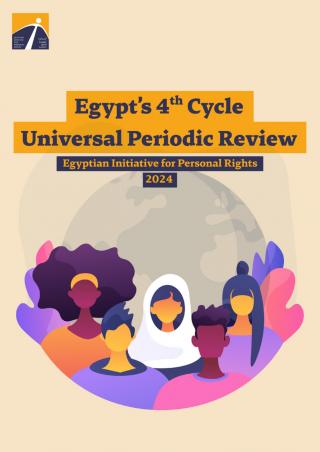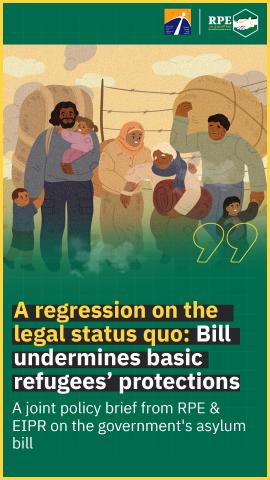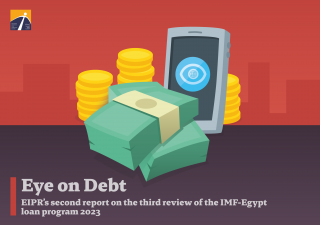In late November, The Egyptian Cabinet, unexpectedly, approved a new draft law aiming to regulate medical liability and enhancing patient protection.
Programs: Economic and Social Justice
Any attempt to undermine the social security net at present is nothing short of a crime
The Egyptian Initiative for Personal Rights (EIPR) expressed its dismay at the decision issued on 26 November by the Administrative Court’s Justice Chamber of the State’s Council that rejected 19 of the petitions EIPR had filed against the Mini
The Egyptian Initiative for Personal Rights (EIPR) calls for the Ministry of Interior to rescind its administrative directive mandating prior travel authorisation for certain women seeking to depart from Egypt for Saudi Arabia.
The bill contravenes international law and the Egyptian constitution
Refugees in Egypt and the Egyptian Initiative for Personal Rights: The asylum bill inflates security measures and is inconsistent with Egypt’s international obligations
prepared by the Refugees Platform in Egypt (RPE) and the Egyptian Initiative for Personal Rights (EIPR)
Introduction
For the past four years, Cairo’s historic cemeteries have faced systematic waves of destruction, carried out in successive stages.
More inflation…more pain inflicted on the people of Egypt
After a downward trend in previous months, Egypt's inflation rates rose again in August and September. The rise was driven by the government's continued implementation of the IMF program's measures, most notably the hike in energy and electricity prices.






